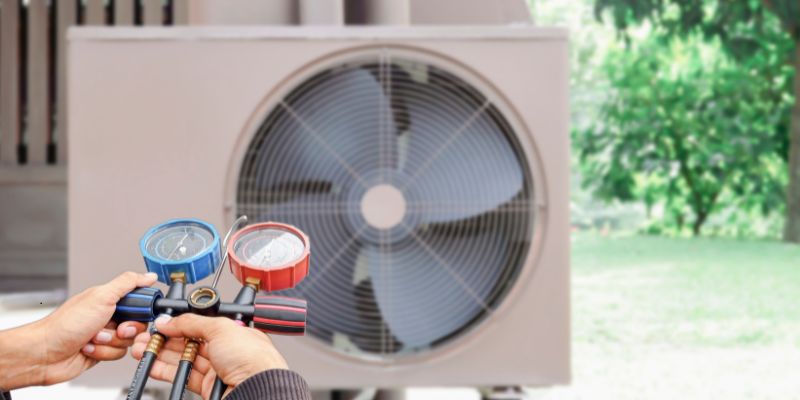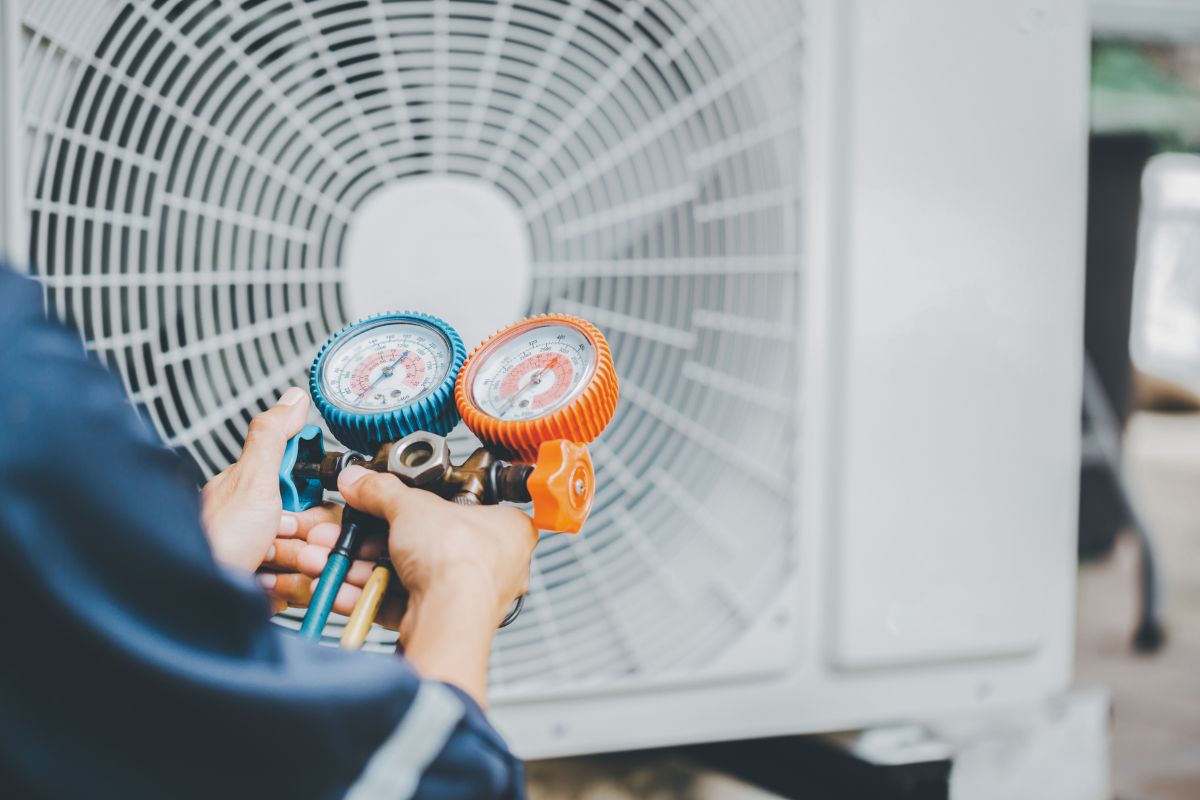When it comes to cooling large spaces efficiently, HVAC chillers are the unsung heroes that quietly go about their job. These advanced systems are the backbone of modern air conditioning in commercial buildings, factories, and industrial settings.
But what exactly is an HVAC chiller, and how does it work? Buckle up because we’re about to break down everything you need to know about these powerful cooling machines.
What Is An HVAC Chiller?
An HVAC chiller is a cooling system designed to remove heat from a liquid, typically water. This chilled liquid is then circulated throughout a building to cool the environment. Think of them as the ultimate air conditioning units, capable of keeping massive spaces, like office buildings or manufacturing plants, cool and comfy.
Types of HVAC chillers:
- Air-Cooled Chillers: These use fans to dissipate heat into the air. They’re common in smaller spaces or where water isn’t readily available.
- Water-Cooled Chillers: These use water for heat dissipation and are ideal for large-scale operations due to their energy efficiency.
Both systems are heavy lifters, ensuring precise temperature control and supporting a variety of applications, from indoor cooling to industrial processes.
How Do HVAC Chillers Work?
At the heart of an HVAC chiller is the refrigeration cycle, a nifty bit of science that removes heat from one place and transfers it to another. Here’s how it rolls:
- The Compressor: This is where the magic begins. The compressor pumps a refrigerant (kind of like a heat sponge) through the system.
- The Condenser: The refrigerant, now a high-pressure, high-temperature gas, flows to the condenser. Here, it releases heat to the air or water, cooling back into a liquid.
- The Expansion Valve: This sneaky device reduces the pressure of the liquid refrigerant, making it super cold.
- The Evaporator: Finally, the chilled refrigerant absorbs heat from the circulating water, cooling it. The heat-laden refrigerant then heads back to the compressor, and the cycle repeats.
The result? Your space stays comfortable, no matter how blistering the temperature outside.
Key Components Of An HVAC Chiller
Understanding how chillers work wouldn’t be complete without a peek inside. Here are the main components that make these systems tick:
- Compressor: The muscle of the system that powers the refrigeration cycle.
- Condenser: Helps dump heat outside, either into the air or water.
- Evaporator: The cool kid of the group, removing heat from the liquid.
- Expansion Valve: Controls the refrigerant’s pressure and temperature.
- Pumping System: Moves the chilled liquid throughout the building, ensuring every corner gets its share of cool air.
Bonus Insight: What’s The Difference Between Chillers And Chilled Water Systems?
Chilled water systems are like assistants for your chiller. They carry the cold water through a network of pipes to ducts or air handlers to cool the air, making the entire process efficient and widespread.
Benefits Of HVAC Chillers
Still, wondering why HVAC chillers are such a big deal? Here’s why they’re worth every penny:
-
Energy Efficiency
They cool large spaces while consuming less energy compared to traditional methods. -
Scalability
Chillers can be tailored for small offices or massive factories, and no job is too big or small. -
Temperature Precision
They offer consistent and reliable cooling, which is critical for comfort and industrial processes. -
Low Maintenance
Chillers generally require less upkeep than standard systems, saving you time and money.
And if you’re running a production facility, chillers can also enhance manufacturing speed by maintaining optimal temperatures for your equipment. Efficient and productive? Yes, please!

Why Choose Fahrenheit Air Conditioning & Heating For Your HVAC Needs
Need help with your HVAC chiller system? Look no further than Fahrenheit Air Conditioning & Heating. With extensive experience in repairing, maintaining, and installing HVAC chillers for both residential and commercial applications, they’re your go-to experts in Florida.
Their technicians have the know-how to tailor solutions to your specific needs, ensuring you get the perfect balance of efficiency and comfort. Call them today to find out how they can keep your spaces cool.
Final Thoughts
HVAC chillers are the quiet champions of cooling, powering everything from mega-sized shopping malls to industrial plants. They combine science, precision, and energy efficiency to create a cooling solution that’s hard to beat.
Whether you’re looking to install a new system or optimize an existing one, understanding how chillers work is the first step in staying ahead of the heat. And with Fahrenheit on your side, you’re already winning. Stay cool, friends!
